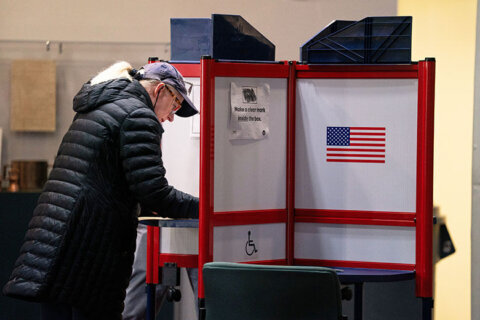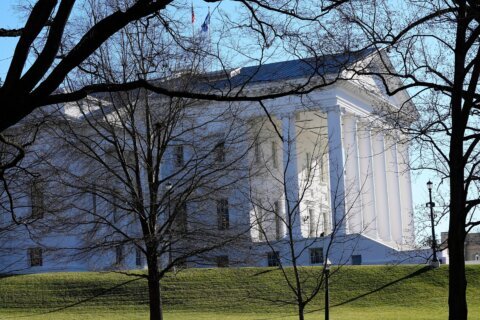This article was reprinted with permission from Virginia Mercury.
The Virginia Senate on Monday passed a bill authorizing local governments to increase their local sales tax to fund school construction projects if voters approve the hike in a referendum.
The proposal received support from the Senate during the past two sessions, but it faltered both times in the House, which was then controlled by Republicans. This year, Democrats have control of both chambers of the legislature, fueling lawmakers’ hopes it will reach Gov. Glenn Youngkin for approval.
On Monday, party members cast the decision as a nonpartisan goal.
“I think it’s important to recognize that kids, when they go to school, don’t go to Democrat schools or Republican schools. This is something that all the reports indicate impact every single one of our areas,” said Sen. Jeremy McPike, D-Prince William.
Sen. Barbara Favola, D-Arlington, a former member of the state’s Commission on School Construction and Modernization, said during a tour of schools around the commonwealth, she had seen leaky roofs, broken toilets and aged buildings that had limited internet connections.
“This is an option localities can use if their voters have to agree to it, and the money would be earmarked for new renovations or new schools,” Favola said. “There is nothing bad about this bill. In fact, it is a statement about how important public education is, including the value of the buildings our children are learning in.”
Under the bill, local governments would only be able to impose the 1% sales tax if voters approved the increase in a referendum.
Thirteen Republicans voted against the measure Monday, with Sen. David Suetterlein, R-Roanoke, contending tax increases could further strain the budgets of low-income Virginians.
“We all know the sales tax is regressive,” Suetterlein said. “I’ve appreciated some of the comments from some of my friends that aren’t of the party of the governor pointing out that sales tax increases hurt working people, and that’s a reason why I oppose sales tax increases strenuously over and over again.”
Senators agreed to amend the bill to apply to schools “serving” a county or city rather than schools “in” a county or city, a change intended to give local governments more flexibility to work together to raise funds for school construction costs.
Because Virginia is a Dillon rule state, local governments are only allowed to exercise powers the legislature has specifically authorized them to have. While localities have control over adjustments to their property tax rates, they aren’t allowed to change the sales tax rate without explicit permission from the General Assembly.
Currently, state law only allows nine localities — the counties of Charlotte, Gloucester, Halifax, Henry, Mecklenburg, Northampton, Patrick and Pittsylvania and the city of Danville — to impose a 1% sales tax to fund school construction and renovation projects. Other bills this session are seeking to add the city of Newport News and the counties of Prince Edward and Stafford to that list.
According to a survey conducted by the Virginia Department of Education, over half of Virginia’s schools are more than 50 years old, with replacement costs for each in the millions.
In 2021, Virginia invested nearly $1.3 billion into programs distributing grants and loans for school construction.
Any of the bills that make it out of both chambers will still require approval by Youngkin, who could sign them into law, veto them or suggest changes.







